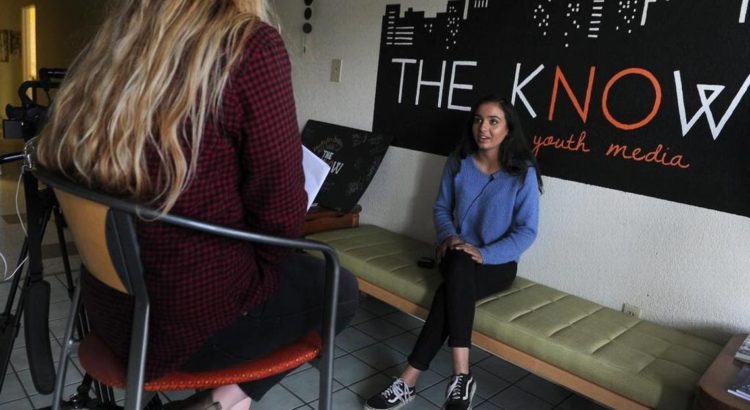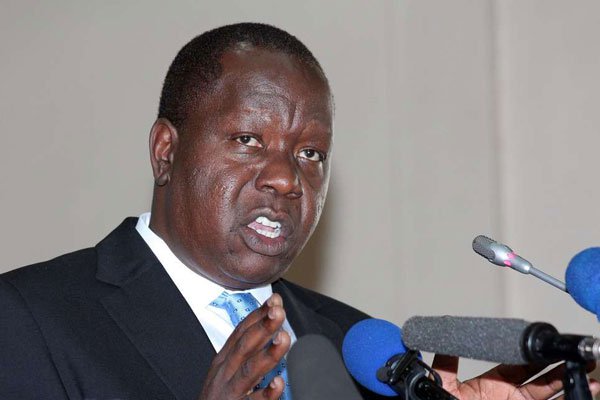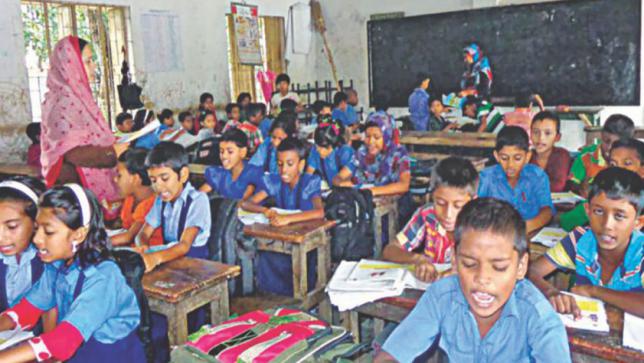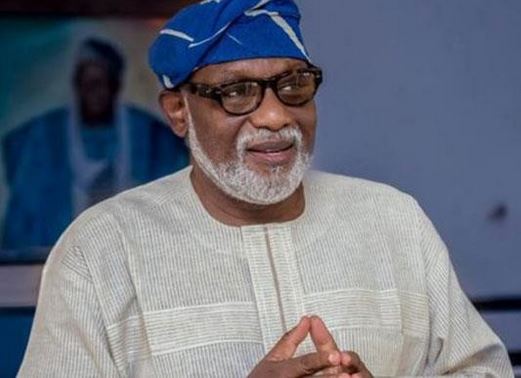“It’s complicated.”
That headline in The Bee’s “Too Young?” series on sex education and teen pregnancy this fall says it simply. There is no easy map for navigating the roiling seas around sex education and teen pregnancy in the Valley. We all want the best for our children, but boy, what we are doing now clearly isn’t working for us.
Half of California’s 10 counties with the highest teenage birth rates are in the Valley, despite statewide and nationwide record lows in teen births. Fresno County has the second-highest rate of syphilis in California and the third-highest rate of chlamydia.
Process that: The same teens too embarrassed to walk into class late are spreading two noxious sexually transmitted infections to their classmates at epidemic levels.
How do we help them get a healthier, stronger start in life?
A state law that went into effect last year mandates comprehensive sex education aiming to curb those rates and requires schools to have trained instructors to teach about contraception, abortion, sexual consent and more.
That’s a good thing for Fresno because in 2011, Fresno school administrators cut sex ed classes to save money. The babies born to that group without sex ed since then are now entering our kindergartens. Small wonder we see the statistics we do.
Still, despite all that, The Bee’s series was met with unprecedented push back on a health education story. Despite an impeccable academic process, with assistance from the University of Southern California’s Annenberg Center for Health Journalism fellowship, a conservative organization threatened legal action against The Bee for asking questions of the teen students.
In a story published Aug. 4 in The Bee, Fresno Unified School District President Brooke Ashjian said the district has to follow the law, “but you have kids who are extremely moldable at this stage and if you start telling them that LGBT is OK and that it’s a way of life, well maybe you just swayed the kid to go that way.” And he said, “it’s so important for parents to teach these Judeo-Christian philosophies.”
That set off a firestorm. Ashjian later lashed out with false accusations that The Bee did not have permission from the district to conduct a survey of teen attitudes on sex education. We did, and Supt. Bob Nelson confirmed the district’s approval of the survey and voiced his support for the project.
There has perhaps never been a time when children so desperately needed guidance, given our sex-saturated culture. It is a time when even our most admired adults are confessing to unspeakable abuse. Their victims describe behavior that essentially weaponized sex.
This is not the way we want to introduce our young people to one of life’s great gifts, a healthy, loving expression of intimacy that makes it possible to bring new life into the world.
When it comes to getting the facts of life, teens today might seem to have no excuses, given the access to the latest science via the internet and TV programming. Go on YouTube and key in “sex education” and see what you get: More than 4.2 million results.
There are the Hogwarts guide, the 1980s Irish Catholic guide, Hindi, Pakistani, the comedy video, the scary video. The sources are probably unknown to them, but there is the Mayo Clinic and there is pornography. Do we just throw them in the open sea and let them figure it out themselves? Sadly, that’s where they usually land. Too many people are pretending it’s not even there.
In a survey conducted by The Bee, 38 percent of about 160 teens said they learned the most about sex from TV and the internet. That was second only to what they learned from friends, at 43 percent. School lessons were far behind at 13 percent and parents ranked dead last at 8 percent.
That is not to say we don’t have a lot of wise people who know what we need to do. There are excellent programs doing great work in both prevention and guiding teen parents to achieve their dreams. We just need to do more of it.
Preparing young people to delay pregnancies beyond their teens has a huge payoff for them and their children. Children born beyond the teens are more likely to be born full-term and healthy, more likely to do well in school, to acquire careers that can support a family, less likely to divorce or be incarcerated.
We can help our community get there with constant vigilance, adequate funding and a compassionate, kind, empathetic intention to succeed.
Here are some clues we gleaned from the teens and experts in our series. Let’s give respect where it is due and start with the teens themselves.
GIVING TEENS A GREAT START
▪ Do get involved in extra-curricular activities, sports, youth groups and personal development programs. Consider getting an after-school job or try for an on-campus position like tutoring.
▪ Don’t be ashamed to grow up. Recognize that your interest, curiosity and experimentation with sexuality is a normal part of maturity. In most families, parents are expecting these questions and will be happy that you are comfortable in coming to them with your concerns.
▪ Don’t be ashamed to be shy. If your parents come with a little too much and you’re overwhelmed, tell them to slow it down.
▪ Do be considerate. Before you ask adults, even your parents, for information about sex, it’s polite to get their permission to get into the conversation. They might need to set up the right time and place.
▪ Do establish a good rapport with a doctor, nurse, school counselor or other medical professional who can give you reliable factual advice. Sometimes it’s easier to ask questions of an aunt or a friend’s parent. If you are sexually active, you should know exactly where to go in case of suspected pregnancy or sexually transmitted infection. Act quickly.
▪ Do know your rights. Pastors, physicians and counselors are honor bound to keep your information private. Here is a website for the American Civil Liberties Union guide: http://bit.ly/2kwHOSD
▪ Don’t perpetuate bad teaching. If your school sex-education classes are not helpful or if you think the teacher is miscast in the assignment, give your feedback to your parents or to a school counselor. If you are concerned about repercussions, ask that the source be kept confidential.
HEALTHY TEENS NEED ALL OF US
▪ Don’t pretend teen sexuality doesn’t exist, that it will go away.
▪ Don’t imagine mistakes with sex are only going to happen to “other” kids, that families are immune who go to temples, Mass or mosques. For teens, sex is new, mysterious and exciting. They will experiment.
▪ Do check the language. Careless, degrading name calling and thoughtless comments are not helpful. They create a culture that sends a message that sexually active teens who seek birth control, condoms for safe sex or reproductive information lack morals, have no worth and no future. Using insulting terms like “sperm donor” or “deadbeat dad” routinely for teen fathers sends a message that they are expected to desert their responsibilities as parents. If they hear it often enough, it will manifest itself in reality.
▪ Do congratulate new parents and welcome them into the “club” of helpful allies, no matter how that came about.
▪ Do support young parents’ professional goals and encourage them to continue their education. Don’t consider them or their children throw-aways.
▪ Don’t let up the fight when elected officials want to slash funding for after-school programs, sex education or health clinics that contribute to your teen-agers’ health. President Donald Trump proposed to do exactly that earlier this year. Fresno Unified reacted in the right way, vowing to use its own money to keep these valuable programs going.
▪ Don’t let scientists or journalists be starved of funding or silenced by people who say knowledge about sex is harmful.
▪ Do offer and publicize community resources where parents can learn how to talk to their teens, because evidence shows most parents are not comfortable with these conversations. Recruit trusted medical professionals with charitable spirits and good communication skills to help out.
▪ Do make sure low-income areas of town get their share of public assets like clinics with reproduction services, recreation centers, public transit, counselors and nonprofit services.
▪ Do publicize where people can go for low- or no-cost condoms and reproductive health care.
▪ Don’t ignore low-income neighborhoods and their needs just because they are “not safe” or unfamiliar. Statistics show that in a 15-minute drive from north Clovis to central Fresno, the teen birth rate goes up by 10 times. Nothing is a bigger determinant on teen pregnancy than the neighborhood a child lives in. It doesn’t have to be that way. Allocate resources appropriate to the needs in the neighborhoods. In many ways, Fresno and Clovis do the exact opposite.
▪ Do provide structure in needy communities with recreation, education and jobs to strengthen the family structure.
▪ Do provide a trusting atmosphere in health clinics where teens feel welcomed and respected. Don’t talk down to them or diminish them. They won’t come back.
FAMILIES LAY THE FOUNDATION
▪ Do prepare to talk to children and teens about sexuality. When parents refuse to answer questions about sex at home, it’s often because their own parents didn’t feel comfortable with the topic so they have no model.
▪ Do encourage children to ask questions and express their thoughts and fears.
▪ Do accept the truth that this is a decision teens make on their own.
▪ Do explain your family’s expectations and moral beliefs about sex.
▪ Don’t be discouraged if your teens cannot get over the “ick” factor of talking to mom and dad about sex.
SCHOOLS MAKE A DIFFERENCE
▪ Do train teachers to deliver sex education classes effectively. Just because teachers have attended professional development sessions doesn’t mean they are comfortable and effective with the students. Monitor performance constantly for effectiveness.
▪ Don’t settle for mediocrity, strive to be champion sex ed teachers, just as other divisions strive for excellence.
▪ Do support the establishment of health clinics in schools where health care, transportation and access to information and birth control are an issue. Make sure they are responding to the needs of the people they serve and not a prescribed standard agenda with no connection to the community.
HELPING TEEN PARENTS SUCCEED
▪ Do establish programs with good track records to encourage and support teen dads. Expand and replicate the programs already getting results.
▪ Do respect teen fathers and mothers. Address their questions, include both parents in child development education, reassure their capabilities. Praise their attempts while learning.
▪ Break the cycle when young dads or moms haven’t had a two-parent family role model of their own to learn from. Invite them to hang out with strong families.
▪ Teach young men their rights and responsibilities as fathers, 50-50 parenting, healthy masculinity.
▪ Do fund-raise for good programs and awareness campaigns, recognizing that most grants and funding are geared to the mothers, since they have the bulk of the responsibilities.
Source:
http://www.fresnobee.com/opinion/editorials/article188918834.html













 Users Today : 15
Users Today : 15 Total Users : 35460146
Total Users : 35460146 Views Today : 24
Views Today : 24 Total views : 3418807
Total views : 3418807